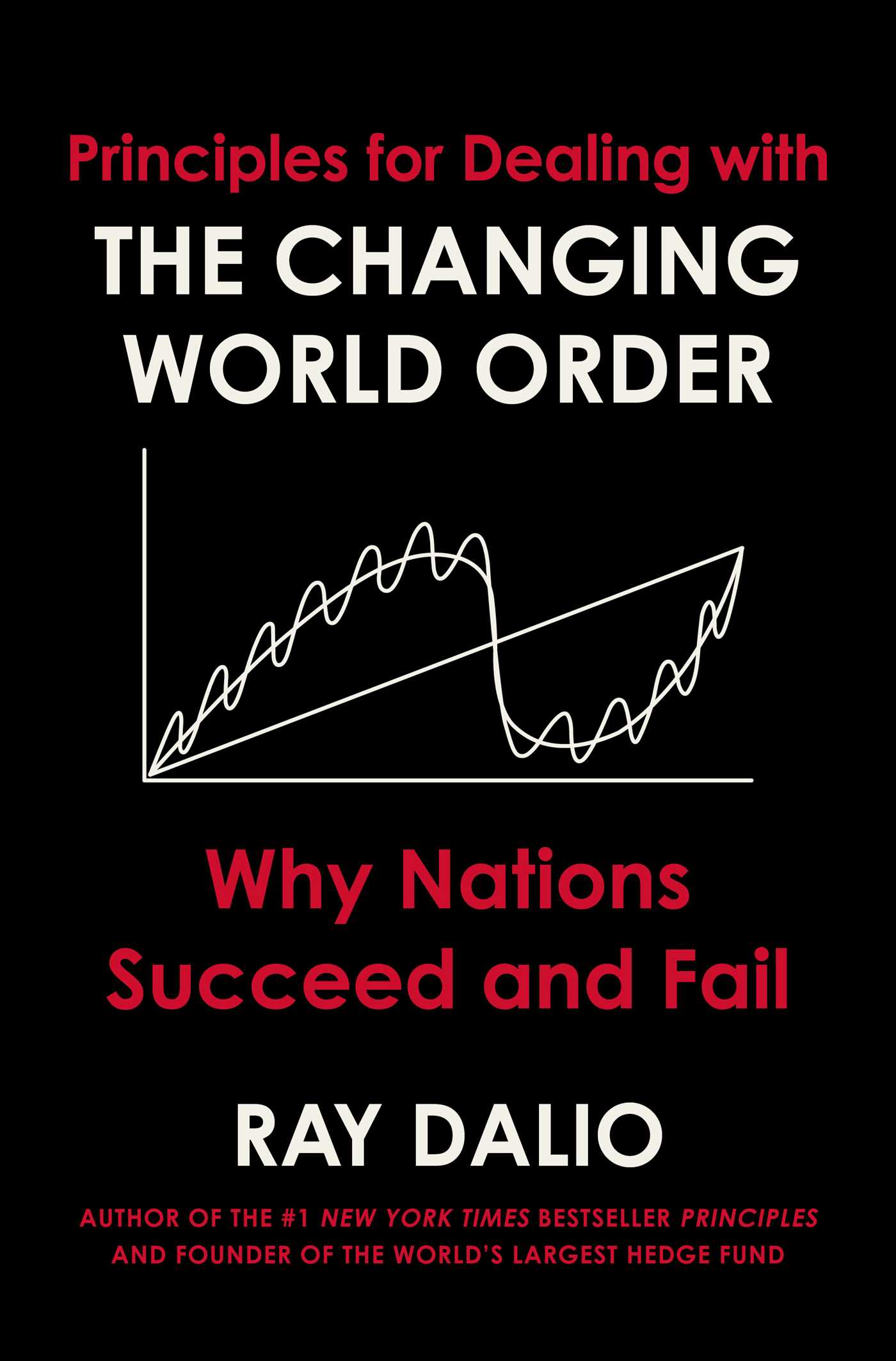Snippets about: Globalization
Scroll left and right !
Eastern European Scholars Recognized the Danger of Trump
In the lead-up to the 2016 election, most American commentators assured the public that Trump would be stopped by one institution or another. But scholars of Eastern Europe sounded the alarm early based on patterns they recognized from their own countries' experiences with tyrants.
As Snyder notes, "Those who were born into postwar Europe or the Soviet bloc had an advantage. They could not entertain the idea that history was over. They had seen the boundary between civilization and barbarism crossed more than once...When voting booths were brought out for an exercise in pseudo-democracy, they had to know how to read the body language of power and the real meaning of slogans." Those who lived through democratic collapse in Eastern Europe have hard-won wisdom that Americans ignore at our peril.
Section: 1, Chapter: 16
Book: On Tyranny
Author: Timothy Snyder
Adapting Candor For Global Teams
Applying Netflix's culture of candor globally requires adaptation. Directness varies widely across cultures.
* For less direct cultures (e.g., Japan, Singapore): Increase formal feedback moments (put it on meeting agendas), provide clear structure, and allow time for preparation. Ad-hoc feedback may be rare.
* For more direct cultures (e.g., Netherlands): Recognize they may perceive typical American feedback (sandwiching criticism with praise) as less sincere or clear. They may also deliver feedback more bluntly.
* General Rule: Talk openly about cultural differences in feedback styles. Encourage mutual adaptation. Add a 5th 'A' to feedback: Adapt delivery to the recipient's cultural norms.
Section: 4, Chapter: 10
Book: No Rules Rules
Author: Reed Hastings, Erin Meyer
The Global Nature of EUV
“The scientific networks that produced EUV spanned the world, bringing together scientists from countries as diverse as America, Japan, Slovenia, and Greece. However, the manufacturing of EUV wasn’t globalized, it was monopolized. A single supply chain managed by a single company would control the future of lithography.”
Section: 6, Chapter: 39
Book: Chip War
Author: Chris Miller
The Globalization Of Proxy Warfare And Mercenary Entrepreneurs
The war in Syria incubated new models of deniable force projection by Russia, Iran and others, through proxies and private military companies (PMCs):
- Russia's Wagner Group, a deniable cutout for Russian military and intelligence, debuted covert combat capabilities
- Iran deployed Shiite militias like Hezbollah alongside "advisers" to augment Assad's forces
- Both exploited mercenary units' potential as business ventures, granting them access to oil and mineral rights
Proxy warfare's semi-corporate innovations make military meddling harder than ever to police.
Section: 1, Chapter: 4
Book: Autocracy, Inc
Author: Anne Applebaum
The Paradox Of Multicultural Tolerance
How should a multicultural society deal with intolerant subcultures in its midst? It's a hard dilemma with no easy answers. Consider:
- A tolerant society that accepts diversity will inevitably include some intolerant groups that reject diversity, like religious fundamentalists who oppose gay rights or immigrants who refuse to integrate.
- If a society is too tolerant of intolerance, it risks letting hateful groups undermine its core values and institutions. But if a society is too intolerant of intolerant groups, it becomes a bit intolerant itself.
There's no clear solution, but here are some principles to consider:
- Insist that all groups, no matter how traditional, respect the fundamental human rights of their members.
- When groups express bigoted views, counter them openly with arguments and data, don't just ban the expression. Outlawing ideas risks letting them fester underground.
- Focus on integrating the younger generation of minorities through mixed schools and neighborhoods.
Section: 2, Chapter: 9
Book: 21 Lessons for the 21st Century
Author: Yuval Noah Harari
Huawei's Rise: A Strategic Challenge
Huawei, a Chinese telecom giant, has emerged as a major player in the global tech industry, offering advanced telecom equipment, smartphones, and other tech infrastructure. The company's success, built on a combination of R&D investment, efficient manufacturing, and government support, has raised concerns in the U.S. and other countries, as it is seen as a strategic challenge to American technological leadership and a potential security risk.
Section: 7, Chapter: 46
Book: Chip War
Author: Chris Miller
The Five Global Risks We Should Worry About, According To Data
While we shouldn't let fear dictate our priorities, Rosling outlines five global threats that the data suggest we should take seriously and work to address:
- Global pandemic - A worldwide disease outbreak could spread rapidly and claim millions of lives in our interconnected world
- Financial collapse - A major worldwide financial crash could cause a severe global recession and throw hundreds of millions back into poverty
- World War III - An armed conflict between superpowers could be catastrophic for humanity in the nuclear age
- Climate change - Continued greenhouse gas emissions will lead to devastating ecological, economic and humanitarian impacts
- Extreme poverty - 800 million people still trapped in extreme poverty, which stifles human potential and progress on other fronts
Section: 1, Chapter: 10
Book: Factfulness
Author: Hans Rosling
A New Era Of US-China Rivalry
Dalio explores the evolving relationship between the US and China, which has moved from cooperation to confrontation in recent years. The US and China developed a close economic relationship in the 1980s-2000s, with the US providing a market for cheap Chinese exports while China recycled its surpluses into US debt securities. But many in the US saw this as unfair.
Under Xi Jinping, China has become more assertive in challenging the US-led global order. US leaders have identified China as the top threat to American primacy. A bipartisan consensus has emerged in favor of "getting tough" with Beijing.
The two powers are now engaged in a multi-front struggle encompassing trade, technology, finance, and geopolitics. The US has imposed tariffs on China, sanctioned Chinese tech champions, and sought to limit China's access to the dollar system. China has responded with its own restrictions. Taiwan remains the most dangerous flashpoint, as China views the island as a core interest while the US maintains a policy of "strategic ambiguity" over whether it would defend Taiwan militarily.
Section: 2, Chapter: 13
Book: Principles For Dealing With the Changing World Order
Author: Ray Dalio
The Origins Of East-West Economic Ties In Europe
In the late 1960s, Austrian and West German capitalists met with Soviet communists to discuss building gas pipelines from the communist East to capitalist West. West German Foreign Minister Willy Brandt believed deeper economic ties would make future military conflict unthinkable and promoted "change through rapprochement" (Wandel durch Annäherung).
Not everyone agreed. U.S. presidents Nixon, Carter and Reagan worried the pipelines would enrich the Soviets, increase European energy dependence on Moscow, and empower the regime the West was supposed to be countering. But Brandt's policy largely prevailed, morphing into "change through trade" (Wandel durch Handel) after the Cold War.
Section: 1, Chapter: 1
Book: Autocracy, Inc
Author: Anne Applebaum
Free Trade Globalization Sent Emissions Into Hyperdrive
Before the push for free trade and globalization, global emissions growth had been slowing - from 4.5% annual increases in the 1960s to about 1% a year in the 1990s. But emissions exploded in the 2000s after global trade barriers came down, shooting up to 3.4% growth per year in 2000-2008, well above previous projections.
Globalization enabled the rise of global manufacturing centered in China, the "factory to the world." As multinational corporations scoured the globe for the cheapest labor costs, they set off a coal boom in China to power all the new production. There proved to be an inextricable link between the exploitation of cheap labor and the exploitation of cheap, dirty energy. Emissions were effectively outsourced from rich consumer countries to developing manufacturing countries.
Section: 1, Chapter: 2
Book: This Changes Everything
Author: Naomi Klein
Environmental Problems Require Global Collaboration
Consider the problem of vehicle emissions and air pollution:
- The exhaust from a car in Mexico can impact air quality in Canada. The CO2 emitted by planes over the Pacific contributes to climate change in Africa. Pollutants don't stay within national borders.
- Air pollution kills millions worldwide each year and is a major contributor to respiratory disease, cancer, acid rain, and climate change. Addressing it is one of the biggest public health and ecological challenges we face.
- No nation can regulate all the world's vehicles and industries by itself. Even if the US passes strict emissions standards, those efforts will be undermined if China keeps polluting.
That's why countries have negotiated international agreements like the Kyoto Protocol and Paris Agreement, trying to coordinate emission cuts. In our interconnected world, countries are realizing that cooperating is often essential to serving their national interests.
Section: 2, Chapter: 7
Book: 21 Lessons for the 21st Century
Author: Yuval Noah Harari



